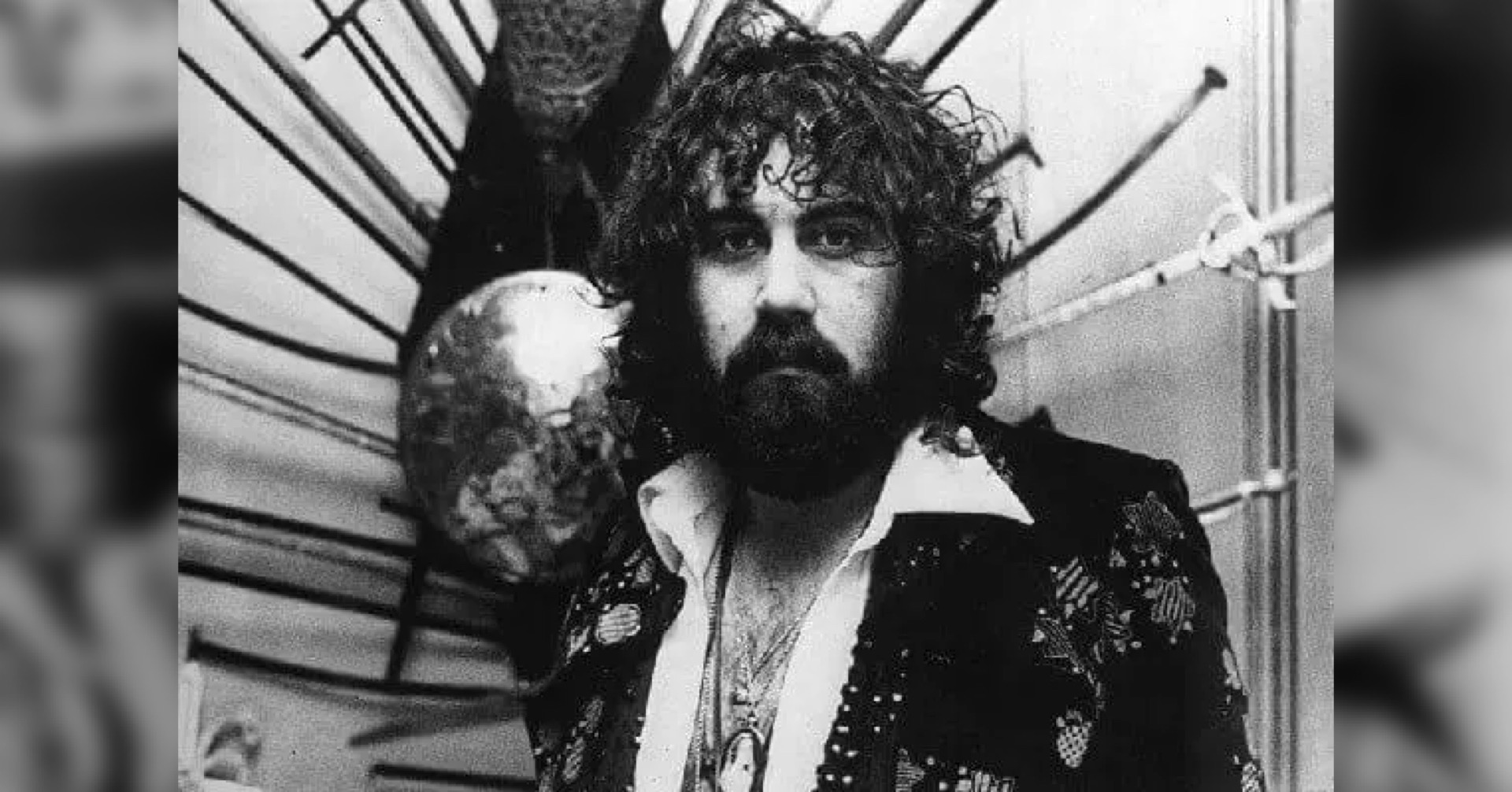(May 20, 2022). Forty years ago this month, Vangelis topped the chart with what would be his only top-40 single. The song was about as unlikely a No. 1 hit as one could imagine, a neo-classical pop unicorn that successfully navigated disparate musical genres just as one era was beginning to fade and another was expanding in popularity.
That No. 1 song was “Chariots of Fire,” also known as “Titles” in its initial pressings (it was the title theme to the Oscar-winning 1981 motion picture). It topped the Billboard Hot 100 on May 8, 1982 for a lone week—it took a record-setting 22 weeks to reach the pinnacle—before yielding to the much faster climbing “Ebony and Ivory” by Messrs. McCartney and Wonder (only six weeks needed for that one to reach No. 1 in stark contrast to the plodding “Chariots”).

Forty years later we mourn Vangelis’ passing. The Greek musician and composer died of heart failure on Tuesday, May 17, 2022, in France. He was 79.
Born Evángelos Odysséas Papathanassíou in Greece in 1943, Vangelis embarked on a legendary career that would see him playing in various bands in the 1960s, releasing many solo albums, and later teaming up with the progressive rock band Yes’ lead singer Jon Anderson. That duo released four studio albums under the name Jon and Vangelis between 1980 and 1991 (two of their singles were low-charting hits here in America), with Anderson mostly handling the lyrics and vocals while Vangelis composed and played the music. (Check out their stellar 1980 album Short Stories if you haven’t already).
The duo of Jon and Vangelis was the result of Anderson getting wind of Vangelis’ work with his own progressive rock band, Aphrodite’s Child, whose 1971 album 666 is considered among the greatest prog-rock albums of all time (Vangelis composed all of that album’s music and you can hear it by clicking the Spotify link below).
But it was Vangelis’ scoring of films like Chariots of Fire (a period piece about two athletes in the 1924 Olympics) and Blade Runner (the 1982 cult classic science fiction film starring Harrison Ford) that brought him the most fame. He won an Oscar for the former and received a Golden Globe nomination for the latter (both for Best Original Score). The Blade Runner soundtrack’s commercial release notably didn’t occur until more than a decade later in 1994.
It was his unlikely accomplishment with “Chariots of Fire” in 1981-82, however, that permanently shaped the Greek composer’s legacy and helped shift the direction of pop music for the remainder of the 1980s and beyond.
By most accounts, Vangelis was a one-man band, often composing all of his music and playing all of the instruments—sometimes in single takes—while specializing in unique synthesizer arrangements.
“Chariots of Fire” was no exception. It combined the styles of classical music and synth pop while containing all the elements of an adult contemporary record (slow, melodic, ballad-like, sans the beat).
In an era where adult contemporary and country had replaced dance and disco as pop’s most prominent forms of music, and the second British Invasion had not yet fully taken hold of America’s airwaves, “Chariots” was caught in the middle, bridging the ending of AC’s domination and the dawning of the synth-pop era.
It was the perfect AC song, but it was also a perfect synth-pop hit, if not a prototypical one. “Chariots” was an instrumental piece in which Vangelis combined the use of synthesized sounds with acoustic guitar and percussion (you can see him playing these instruments in the song’s video below). It was also composed for a film that was set in the 1920s, for which Vangelis intentionally set out to avoid music more befitting of that earlier period to create his masterpiece.
Entering the Billboard Hot 100 in December 1981 and taking a full five months to top the chart, “Chariots” would predate big synth hits later in 1982 by fellow European acts like Human League and Soft Cell, and in 1983 by Eurythmics, ABC, Thompson Twins, Howard Jones and many other artists. But unlike many of those artists’ hits, “Chariots” also topped the Billboard Adult Contemporary chart.
“Chariots” was also one of the last instrumental songs to top the charts (only “Miami Vice Theme” by Jan Hammer and, dubiously, “Harlem Shake” by Bauer have done it since).
Of course, as the 1980s progressed with MTV’s explosion and the second British Music Invasion bringing more uptempo synth pop to unprecedented heights in America, Vangelis’ classic single (and its No. 1 parent album, the Chariots of Fire soundtrack) became somewhat of a musical footnote, not unlike many of the hits of the early 1980s.
And like the 1920s-era film it soundtracked, “Chariots of Fire” had been its own period piece, symbolizing the domination of adult contemporary music in all its forms from 1980-82, before that music gave way to the more danceable genres for which the 1980s later became more famously known.
Over time “Chariots” even became comedic fodder, providing the soundtrack to many a parody of people being filmed running or doing other things in slow motion.
But the song remains a true musical treasure to this day: a one-of-a-kind, dark-horse classic that will forever hold the record for being the slowest climbing No. 1 single of the era before time (that pre-1991 period before SoundScan—now Luminate—began fueling Billboard’s charts with actual point-of-sale and airplay/digital streaming tracking data).
Here’s a fitting musical tribute to Vangelis, a man of enormous stature whose musical legacy will live forever. It’s his own composition “Break” from the outstanding Aphrodite’s Child album 666.
R.I.P. Evángelos Odysséas Papathanassíou (March 29, 1943 – May 17, 2022).
DJRob
DJRob (he/him/his) is a freelance music blogger from somewhere on the East Coast who covers R&B, hip-hop, pop and rock genres – plus lots of music news and current stuff! You can follow him on Twitter at @djrobblog.
You can also register for free (below) to receive notifications of future articles.



